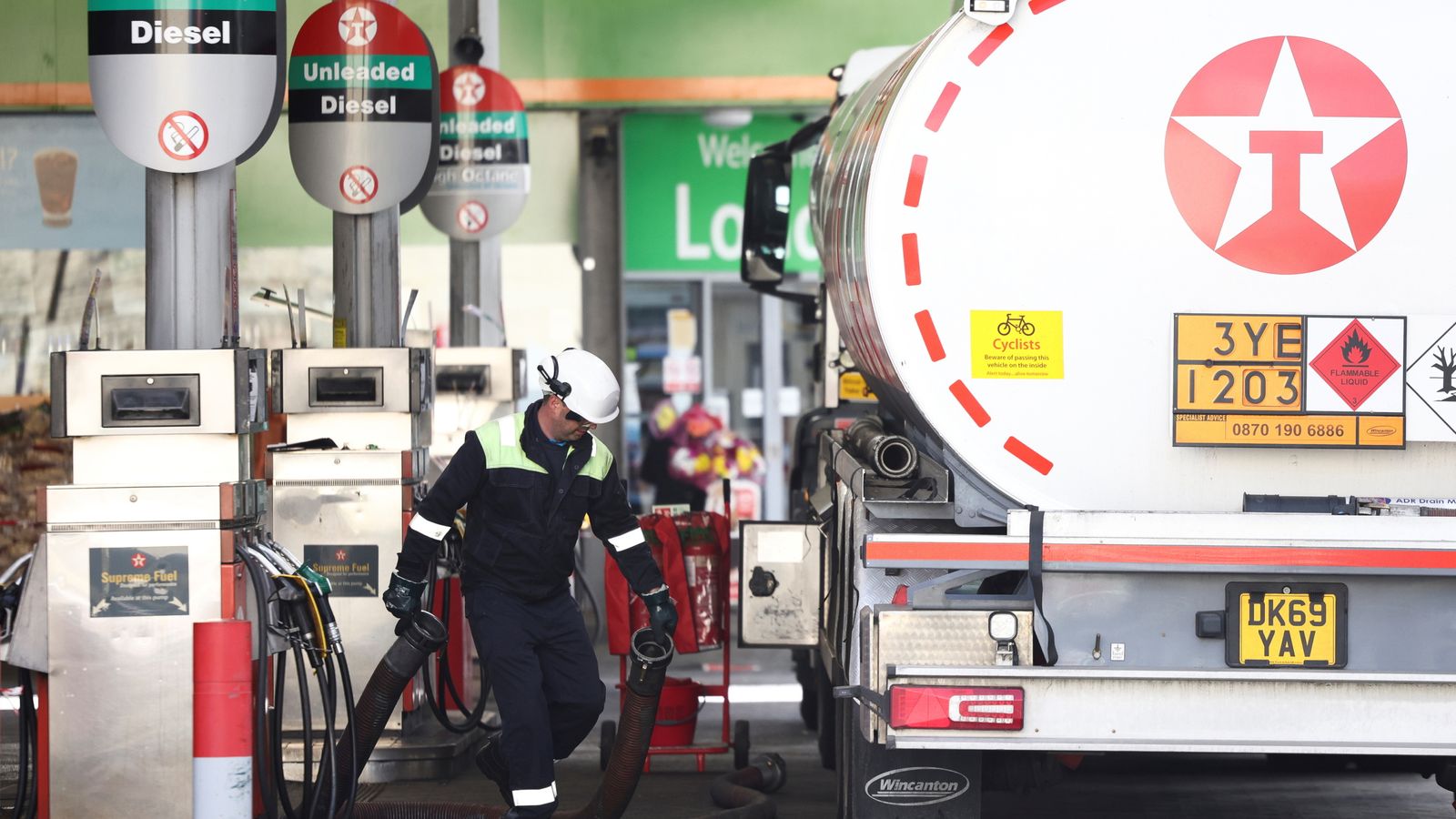Petrol prices are continuing to rise – with the cost of fuel on the forecourt at its highest price since 2013.
The cost of filling up is up by more than 1p compared to last week, according to figures from the government.
The data released today by the Department for Business, Energy and Industrial Strategy showed that the average unleaded driver can expect to pay 137.17p per litre – up from 136.10p last week.
Industry accuses govt of 'inept prioritisation' as London, South East and East still low on petrol
For diesel drivers, they can expect to pay 140.66p per litre – up from 139.2p seven days ago.
This means filling a 55-litre petrol car will cost £75.44, while a 70-litre diesel van will cost £98.46 to brim.
This is £13.19 more per tank of petrol than this time last year, and £15.82 more for diesel.
The last time fuel was priced higher was on 1 April 2013
Lucid Air Dream Edition: Electric car goes into production in US with a 520-mile range – 115 more than Tesla
Car manufacturers not the only ones counting the costs of pivot to electric vehicles
Pod Point hires City grandee Davis to add spark to London float
UK drivers have already been battered in recent weeks by the chaos at petrol stations, with many queueing hours to get on to forecourts, only to find pumps empty.
The Petrol Retailers association today said that 10% of garages in London and the South East are still dry.
And the price of a barrel of crude oil on Tuesday neared $84 – up from around $43 this time last year and $60 in October 2019.
Please use Chrome browser for a more accessible video player
It comes as a YouGov survey for The Motor Ombudsman found that a majority of people are considering switching to electric vehicles (EVs) next year.
Some 61% of people are minded to get an EV in 2022 – with the young the most likely to be eyeing an alternative to internal combustion.
Polling of 1,731 UK drivers discovered that 79% of 18 to 24-year-olds may opt for an EV in 2022.
The survey found the rollout of charging infrastructure across the UK was an important factor to 59% of people considering getting a battery-powered vehicle.
An increase in choice of models was the next biggest reason – quoted by 42% – and 39% said the rise in prices of fuel was an important factor.
The closure of petrol stations and paucity of fuel was mentioned by 22% of respondents considering an EV.
Around 68% of people who were looking at EVs said their primary motivation was to be more environmentally friendly.
Follow the Daily podcast on Apple Podcasts, Google Podcasts, Spotify, Spreaker
Bill Fennell, chief ombudsman of the Motor Ombudsman, said: “As our study has shown, electric vehicles are fast becoming a leading choice for motorists when buying a car, thanks in part to the growing charging network and the greater choice of models now on the market.
“However, current events, such as the rising cost of petrol and diesel at the pumps, the unavailability of fuel, as well as the expansion of the Ultra Low Emission Zone in the London area, are clearly front of mind for consumers, and are playing their part in the decision regarding what type of car to get next.”






















